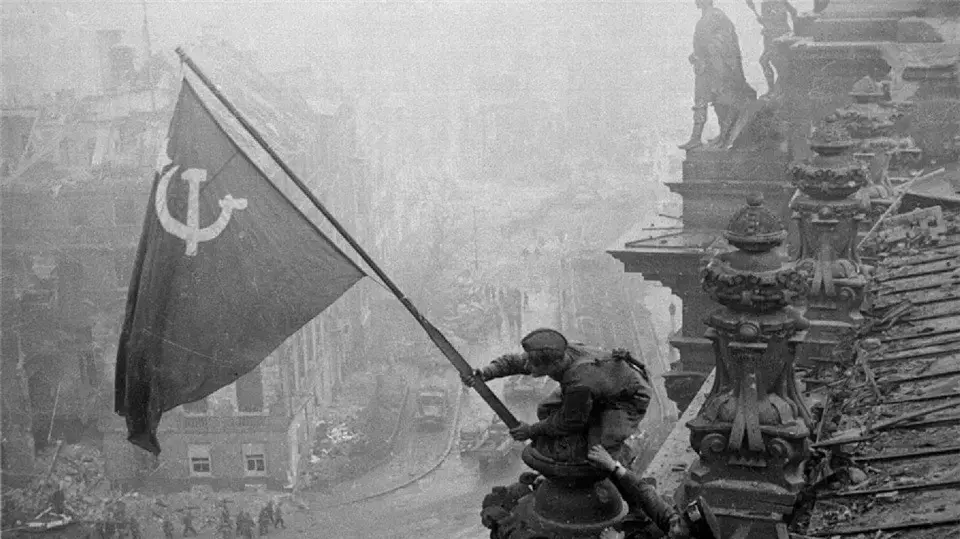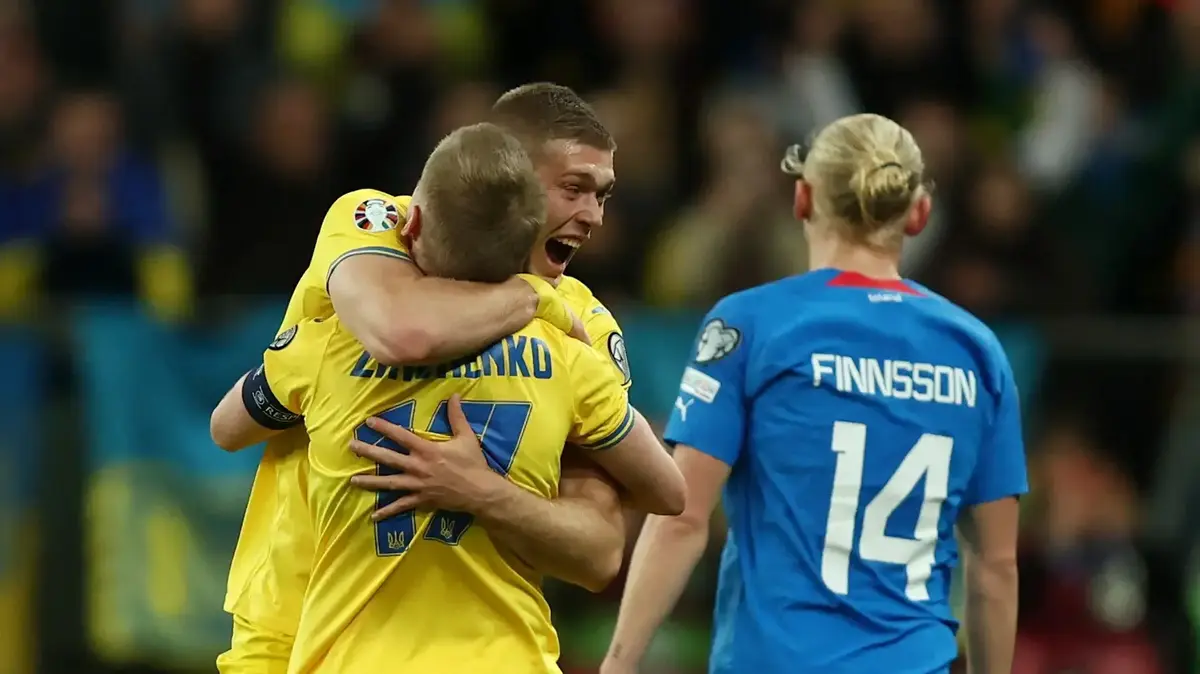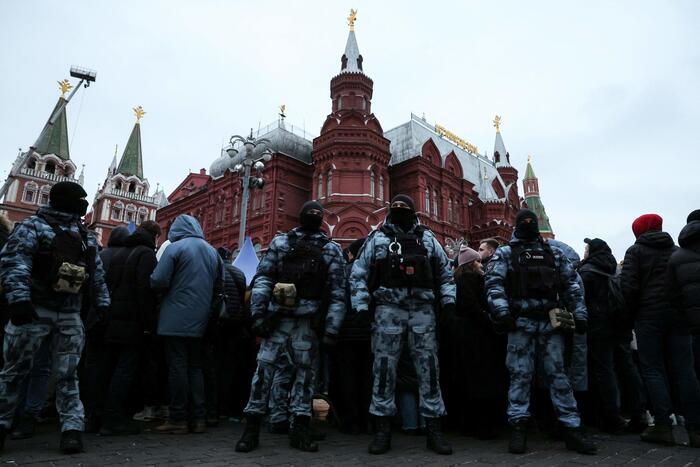While Ukraine bleeds, Putin plans to give new meaning to "Victory Day"
Every year on May 9, Russia marks "Victory Day", marking the defeat of Nazi Germany to the Red Army and the Soviet Union in World War II.
Monday will mark the 77th day of victory when Russia is once again at war - this time with Ukraine.
How will President Putin choose to use this important day?
Tali Goldstein
07/05/2022
Saturday, 07 May 2022, 18:25
Share on Facebook
Share on WhatsApp
Share on Twitter
Share on Email
Share on general
Comments
Comments
"Victory Day" 2021
In the video: Putin at the victory parade in Moscow (Photo: Reuters)
Russian President Vladimir Putin happily surveyed the annual victory parade in Moscow's Red Square.
The parade in the capital, held on May 9, 2021, marked the 76th anniversary of the Soviet victory over Nazi Germany in World War II.
More than 12,000 soldiers, dozens of tanks and about 80 military planes participated in the parade, which also featured intercontinental ballistic missiles.
Putin, who has been in power since 1999, said: "Russia will continue to abide by international law, but at the same time will resolutely defend national interests and the security of our people."
Putin even condemned what he described as a re-emergence of ideologies from that period, saying that racist, nationalist, anti-Semitic and anti-Russian slogans "are becoming more cynical than ever."
A year later, Russia invaded Ukraine as part of a "special military operation."
According to estimates, Putin intends to declare that the "special operation" is officially a war on May 9 - the 77th "Victory Day".
The declaration is supposed to allow for the general recruitment of Russian reservists, who will be added to the forces already fighting in Ukraine.
Although the Kremlin dismissed these assessments, and even stressed that "these are nonsense", but in light of the fact that Putin chose to invade Ukraine on February 24 - a day after Russia marked "Homeland Security Day" on February 23 - it is not known how he will decide to use another day. A special symbolism for his people.
More on Walla!
With a unique patent: the grill that makes every piece of meat especially juicy
In collaboration with Char Broyle
Victory Day 2021 (Photo: Reuters)
On May 8, 1945, World War II was still raging in Asia.
In Europe, the Battle of Prague, the last great battle of the war, is still going on.
The Channel Islands were released only the next day.
How many years will pass before the Soviet Union succeeds in subduing the opponents of the Communists.
But on this day, the letter of German military surrender was signed in Berlin.
The surrender took effect at 23:01 in the presence of Marshal Zhukov, the former chief of staff of the former Soviet army.
From that day on, "Victory Day" in the "Great Patriotic War," as the Russians call the war, was celebrated on May 9 in the Soviet Union and its satellite countries.
The day is celebrated in a military parade in Moscow, and Russian leaders traditionally stand on Vladimir Lenin's grave in Red Square to watch it.
"May 9 is supposed to intimidate the opposition, impress the public at home and make the dictator happy at the time," James Nixi, director of the Russia-Eurasia program at the Chatham House Research Institute, told CNN.
Flag of the Soviet Union on the Reichstag in Berlin, 1945 (Photo: Official Website, Official Website)
However, the status of May 9 changed over time in the Soviet Union and Central European countries.
In Romania, May 9 has become "Royal Day".
In December 1947, Joseph Stalin abolished the Soviet holiday in May in favor of a holiday on January 1.
In Poland, "Victory Day" remained a holiday until a new list of holidays was established in 1951.
The Czech Republic has ruled that May 9 will mark "Liberation Day from Fascism".
In satellite countries, May 9 was celebrated mainly to celebrate friendship with the Soviet Union and to express gratitude to the Red Army.
This geopolitical goal was important within the Soviet Union outside it.
Barrages of honor were fired not only in the "heroic cities" (Leningrad, Odessa, Sevastopol and Stalingrad), but also in Lvov and Kaliningrad, capitals of regions incorporated into the Soviet Union during World War II.
"Victory Day" was not only a military event designed to demonstrate Soviet power, but also a day dedicated to speeches, ceremonies and sports competitions that celebrated the Soviet Union, for young people and future soldiers.
On this day several exemplary heroes were selected from millions of dead and entered the Soviet Pantheon as martyred martyrs of the communist and patriotic cause.
1965 March in Moscow (Photo: Official Website, Wikimedia Commons)
During the Stalin era, "Victory Day" was used not only to honor military veterans, but mainly for military and political propaganda.
Special attention was paid to countries on the fringes of the Soviet Union, especially in the West, such as the Baltic states, Belarus and Ukraine, in an attempt to make them Soviet and ensure that the memory of resistance to the Germans would be forever linked to the Red Army.
Jewish and Christian traditions of remembrance of the dead also played a role on this day, thanks to Stalin's relatively soft approach to religions during and after the war.
Under the rule of Nikita Khrushchev, the renewed worship of the October Revolution (the Russian Revolution of 1917) obscured the tradition of Victory Day.
The discourse that pervaded the brutal political repression during Stalin's rule, hit celebrations as well.
Soviet propaganda continued to focus on Soviet victory mainly outside the Soviet Union.
For example, the book series by the writer Alexander Beck, which describes the fighting of a Soviet infantry battalion during the Battle of Moscow in World War II, was read by the Israeli army and by revolutionaries in South America.
In Ukraine and Belarus, Republican governments tried to replace religious ceremonies with secular ones and supported a culture of worship for partisan fighters.
Surrender and signature (Photo: official website, official website)
The status of "Victory Day" was strengthened again in the 1960s thanks to Ukraine.
In 1964, Petro Shelest, the first secretary of the Ukrainian Communist Party to support the overthrow of Khrushchev, proposed resuming May 9 as a national holiday dedicated to the army and soldiers, and distinguishing it from Labor Day on May 1.
The Soviet leadership, under Leonid Brezhnev, welcomed this.
It tried to remind the world - and especially West Germany - of the Soviet Union's powerful sacrifice in war.
It was also an opportunity to present the Soviet military force in the midst of the Cold War.
Allies and Stalin (Photo: GettyImages)
Another reason for strengthening the status quo today was an internal uprising in Russia that arose due to social issues.
The party felt the need to calm tensions among the workers.
Adding two national holidays - "Victory Day" and "International Mother's Day" - were a convenient way to achieve this.
In addition, while the memory of the October Revolution of 1917 was receding, the "Great Patriotic War" had ended a total of twenty years earlier, and the memory was still fresh among many Soviet families.
Soldiers who fought in it now held public positions and were happy to see the young people cherish them.
"Victory Day" once again became a national holiday for the Soviet people and began to incorporate religious, pagan and ethnic motifs from across the Soviet Union.
2016 Red Square (Photo: AP)
After the fall of the Soviet Union in 1991, in most Central European countries Victory Day was brought forward to May 8.
May 9 has become a day to celebrate "Europe Day".
Only Poland, Montenegro, Serbia and Bosnia continued to celebrate "Victory Day" on May 9.
The establishment of the huge Victory Park in Moscow and the holding of two military parades on May 9, 1995 heralded the rebirth of "Victory Day" as a national day of great importance.
The marches have become mandatory - a phenomenon that President Putin has nurtured.
May 9 was supposed to once again encourage new national pride in the people, after a decade considered highly humiliating for Russia.
The victory was accompanied by a Russian agenda, this time aimed at the world - and especially at European politicians and historians who accused Russia of "falsifying history."
Foreign guests were invited to parades and ceremonies in Moscow and symbolized, in the eyes of the Russians, the support of foreign countries for Russian policy.
Moreover, Russian immigrants in foreign countries continued to celebrate the day and imprinted the Soviet tradition where they lived, for example, Israel, where in 2017 the day was officially declared "Victory Day in Europe".
1985 in Moscow (Photo: Official Website, Wikimedia Commons)
In Ukraine, the annexation of the Crimean peninsula, the separatist movement and the involvement of the Russian army in the Donbas, have created a fierce controversy over "Victory Day."
May 9 remains a national holiday in Ukraine to mark the victory over Nazism in Europe.
The poppy flower has become a new symbol of remembrance, similar to the countries of Western Europe.
The Russians likened the pro-Russian separatist struggle in Ukraine to the anti-fascist struggle in World War II.
Kyiv, for its part, stressed the unwanted presence of Russian troops in the Donbas.
Tanks in Red Square (Photo: AP)
Over the years, the importance of "Victory Day" has faded a bit.
Commentators believe that May 9 in Russia will become an ethnic holiday of Russian-speaking communities outside the country, lose its political significance and become a celebration of Russian culture.
U.S. State Department spokesman Ned Price said last week that there was good reason to believe the Russians would do everything in their power to use May 9 for propaganda purposes.
"We have seen the Russians focus on propaganda efforts as a way to distract the world from their tactical and strategic failures on the battlefield in Ukraine."
Either way, the war in Ukraine has given Putin a golden opportunity to strengthen and renew the status of "Victory Day" among the Russian people and to increase popular support for the fighting, especially in light of the demonstrations of its opponents within Russia.
A declaration of war will enable the mobilization of the reserve force and further establish the absolute status of a president who in 2022 wants to once again turn Russia into a 19th-century imperial empire.
news
World news
Europe
Tags
Russia
Ukraine
Germany
World War II
Vladimir Putin
Nazis






